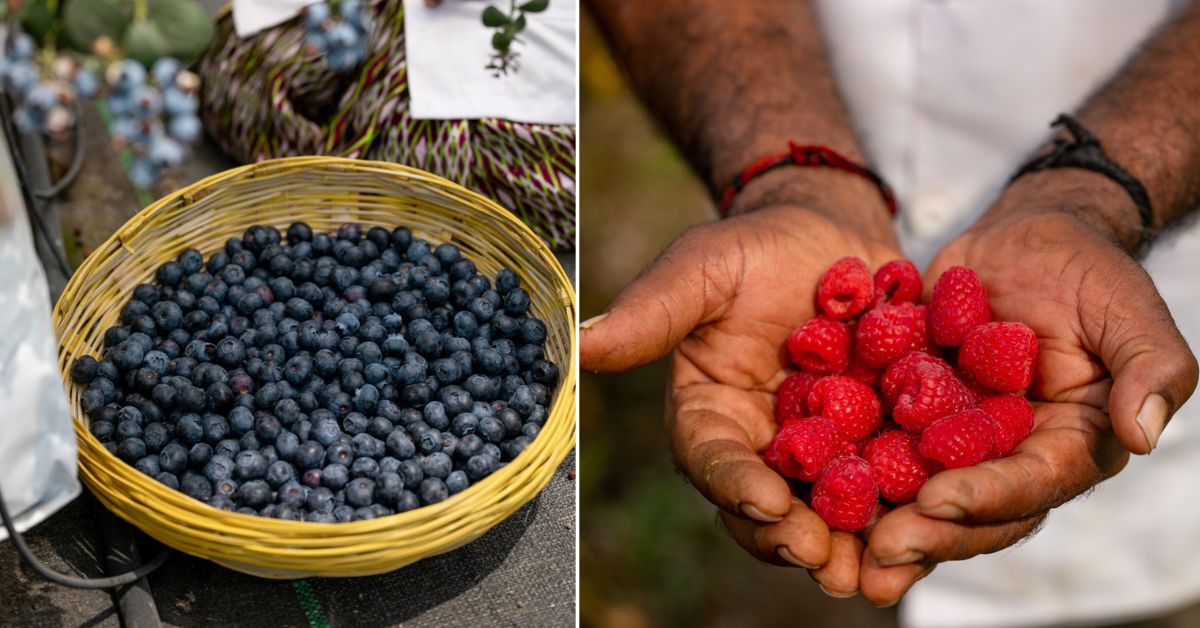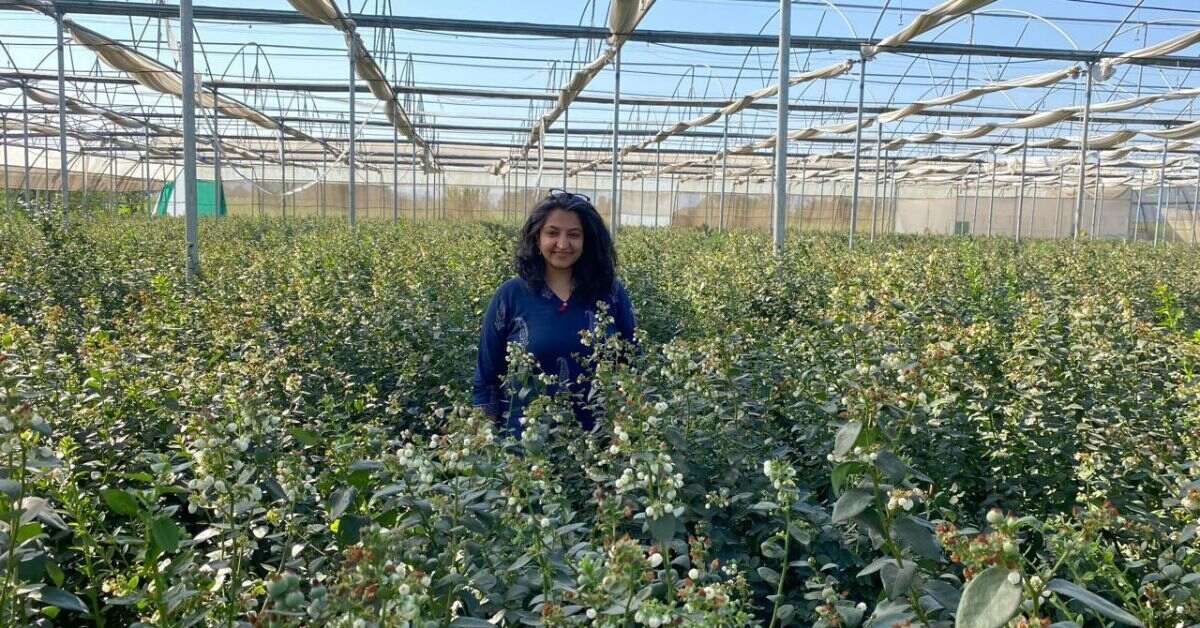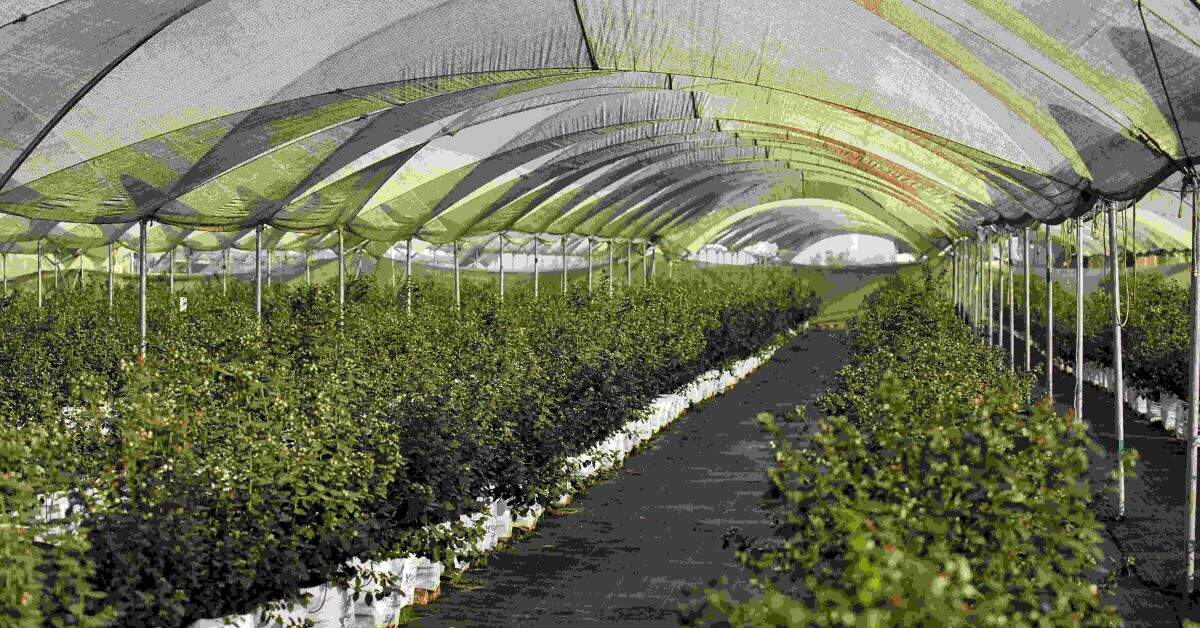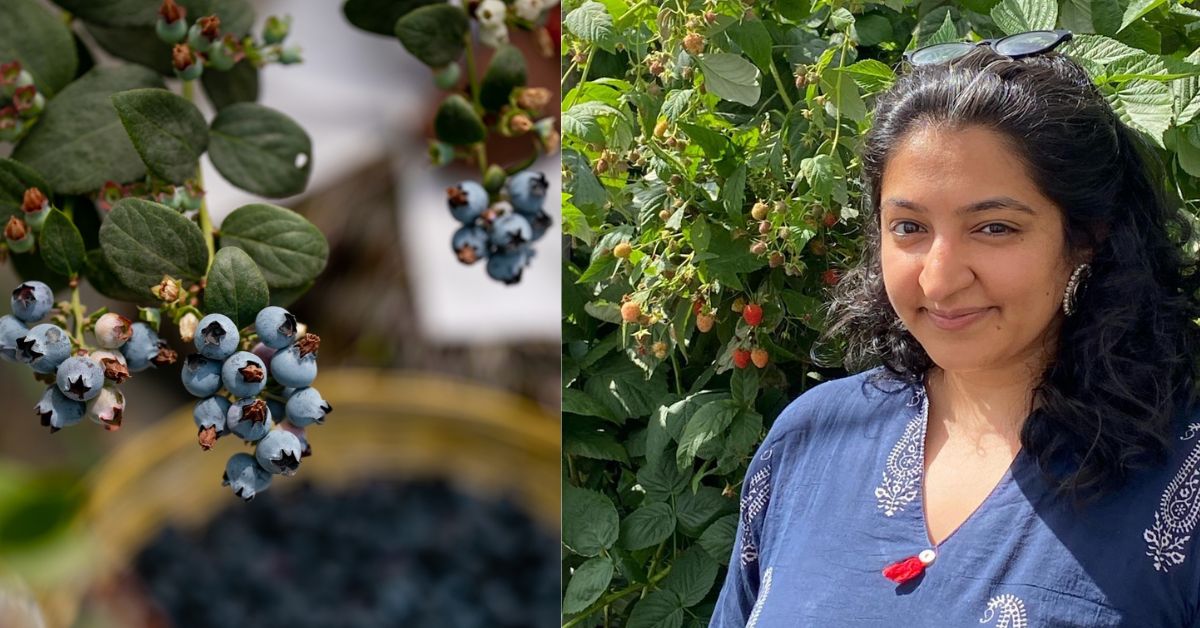Yearly, tonnes of unique fruits together with blueberries and raspberries are imported for city Indian shoppers owing to their wide selection of well being advantages. Information reveals that raspberry, blackberry, blueberry, and cranberry imports into India skyrocketed to 870 tonnes in 2022 – indicating a surge of 148 % in comparison with 2021.
In accordance with the US Highbush Blueberry Council (USHBC), the imports of blueberries in recent and dried kinds grew from virtually zero in 2009 to 1,900 tonnes in 2020, making India one of many world’s high importers of blueberries. This commerce between the US and India is rising at a fee of round 30 % per 12 months.
Whereas these numbers are rising yearly, Maharashtra’s Keya Salot has stepped as much as convey these numbers all the way down to some extent. “In 2021-22, India was importing $2.2 billion of unique fruits and greens. That’s not likely a great quantity. I needed to get into the sector to domesticate these unique varieties domestically. By doing this, it could additionally make them inexpensive for shoppers past metros,” she tells The Higher India.
In 2021, Keya arrange Farm2Fam to domesticate these unique berries. As we speak, she has scaled up the manufacturing on 20 acres of land and estimates a manufacturing of not less than 135 tonnes of berries this 12 months.

In dialog with The Higher India, she sheds mild on the progressive strategies that helped her domesticate berries within the harsh climate situations of the nation.
Stop legislation to change into a farmer
Born and introduced up in Mumbai, Keya was a lawyer by occupation. After pursuing legislation from Mumbai’s Authorities Legislation Faculty, she continued her follow with legislation companies for practically 4 years till she understood her calling.
“I had all the time needed to change into a farmer. For me, the thought of pursuing legislation was all the time to later concentrate on entrepreneurship. However earlier than that, I needed to get good entry to the authorized framework to construct a profitable enterprise. I needed to work in an impactful sector to create a really purpose-driven entrepreneurship programme which might not solely profit me personally however would additionally profit the society,” says the 32-year-old.
In 2018, she took a break from work to know the nitty-gritties of farming as she didn’t have any agricultural background. To start with, Keya began rising about 30 kinds of microgreens in a vertical set-up made on the terrace. Quickly, she began supplying them to eating places, and inside six months, she on-boarded 50 purchasers. This boosted her confidence and allowed her to ascertain retail connections.
“Throughout this transition, I began researching on the sorts of crops grown in different nations that had gained numerous traction in agriculture. In comparison with nations in South and Central America, India has not graduated past rising main fundamental crops like paddy, sugarcane, and wheat,” she shares.

“Even at present, regardless of a good portion of the financial system and the inhabitants being depending on agriculture, we aren’t capable of produce high-value crops. We would have liked to decide on crops that may get a barely longer cycle however will give definitive returns,” she provides.
After a 12 months of analysis, Keya zeroed all the way down to cultivating the crop of blueberries and raspberries – cultivated largely in the US, Russia, Mexico, Serbia, and Poland.
Making international crops adaptable with progressive strategies
Keya shares the main problem in cultivating these unique varieties was to make them adaptable to the Indian climate situations. “Whereas blueberries require chilly winters and reasonable to excessive rainfall all through its rising season, raspberries are additionally suited to temperate areas with cool summers and gentle winters,” she provides.
By late 2019, Keya alongside along with her husband, Vimal Salot, visited Mexico and Europe which had related geometric situations to Maharashtra. In 2020, she imported the primary set of saplings adaptable to Indian climate situations and harvested the primary business yield in 2021.

With a view to domesticate them within the tropical local weather of Maharashtra, Keya opted for the tunnel methodology of cultivation that overcame the drawbacks of maximum climate situations.
“We’re required to guard crops like raspberries and blueberries from excessive temperatures. Presently, India solely has poly homes as an infrastructure for protected cultivation, and in geographical climates like Maharashtra, we want safety from harsh situations relatively than including warmth,” she shares.
“So, we developed our personal low-cost tunnel buildings for rising these berries the place we are able to add or take away the plastic cowl as per the climate necessities and keep superb temperature situations for the expansion of vegetation. With this, we are able to now present a hotter local weather through the winter nights and cooler situations for progress through the summer time days, along with defending the crops from rain. This method has its origin within the European nations the place they use the construction to guard the warmth,” she provides.
Keya put in low-cost tunnels in about 80 % of her farm and is cultivating not less than seven kinds of unique berries. “Rising blueberries below excessive tunnels protects them from extremes of temperature, requires much less water, and yields extra fruit. This methodology additionally helps blueberries ripen earlier. As a substitute of the same old harvest interval that lasts just for a couple of weeks, we are able to harvest yields for 4 to 5 months with this methodology,” she informs.

Highlighting one of many different challenges she confronted in establishing the farm enterprise in Talegaon, Pune, Keya says, “Having access to land was extraordinarily tough for us because it was very tough to persuade a farmer to lease their land to a metropolis dweller. As you should not have a base in a village, it invitations numerous aversion. However after 3 to 4 months of making an attempt our arms, we bought our first piece of land. It took a while to construct belief among the many farmers.”
As we speak, she has expanded the manufacturing on 20 acres of land and expects a bountiful harvest of not less than 135 tonnes of berries this season. As of now, she has collaborated with supply companions like Swiggy and Zepto, and supermarkets like Star Bazaar, KisanKonnect, Reliance Retail, and Nature’s Basket to ship the produce.
Speaking about her transition from being a lawyer to an progressive farmer, Keya says, “It’s a notion that agriculture will not be a worthwhile enterprise. On the identical time, an enormous portion of our financial system rests on it. It’s the duty of individuals with publicity to alter this notion relatively than concern it.”
“I really feel if I had solely practiced legislation, the type of influence that I might have had would have been a lot smaller than what I’m having at present by way of cultivating new sorts of crops by utilizing progressive strategies,” she provides.
Edited by Padmashree Pande; All photographs: Keya Salot.